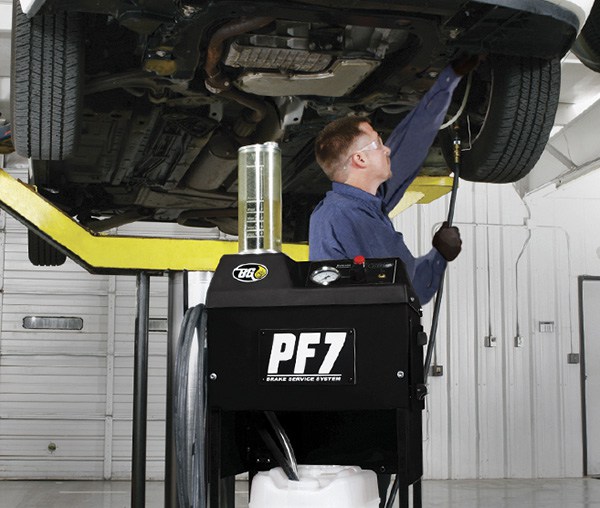Why Flush My Brakes?
If you are like most people, the only time you think about your cars braking system is when you begin to hear a grinding noise or you experience shaking/vibration when pressing the brake pedal. These obvious signs are typically enough to visit your local auto repair shop and we strongly recommend taking your car in immediately if you experience these symptoms. So if you’re not experiencing any out of the ordinary symptoms then you should be good to go, right?
Well, not always… What is happening behind the scenes of your cars braking system is something that is typically not given much thought, but has a huge impact on the overall life of your vehicles braking components. Continue reading to learn what is actually happening inside your cars braking system and how regularly flushing your fluid can save you a lot of money in the long run and keep you and your loved ones safe!
What is a Brake Flush?
A brake flush includes removing your vehicles existing fluid and moisture out of the system and replacing it with new, clean, fluid. A brake fluid flush ensures proper brake system performance and increases the lifespan of your brake system components.
Why Do I Need To Flush My Bakes?
Over time components of your braking system such as the rubber inside the calipers, master cylinders, and wheel cylinders will deteriorate and end up contaminating the fluid. As well, brake fluid is hydroscopic, meaning it absorbs moisture. This moisture causes a number of problems such as rusting internal components, which will further contaminate the fluid. All of the contamination caused harm to your vehicles braking system and decreases braking power.
When to Flush?
A good rule of thumb is to flush your vehicles braking system every 30,000 miles. However, if you are a heavy braker or live in mountain areas where your vehicle is typically under a significant load when stopping due to elevation changes, we recommend flushing your fluid more frequently. Your trusted automotive repair facility can inspect your brake fluid to determine if it should be replaced.
Flush Vs. Bleed?
It is important to note that flushing your brakes and bleeding them are two very different things. Bleeding a vehicles braking system is referring to removing all of the air bubbles that enter the system when performing a brake job. When replacing items such as brake calipers or brake lines, air will enter the vehicles braking system that must be removed. This is a normal procedure to when replacing braking component, but should not be confused with a brake flush.. A brake Flush refers to the removing all of the brake fluid from the system and replacing it with new fluid.
How Much Will This Cost Me?
According to Your Mechanic, the average brake fluid flush costs between $84-$109. This is a very low cost considering the benefits of improving the brake systems life and the overall safety of your vehicle.


Recent Comments